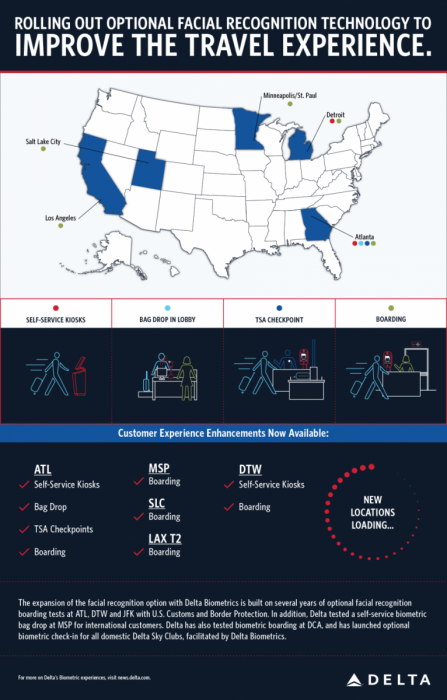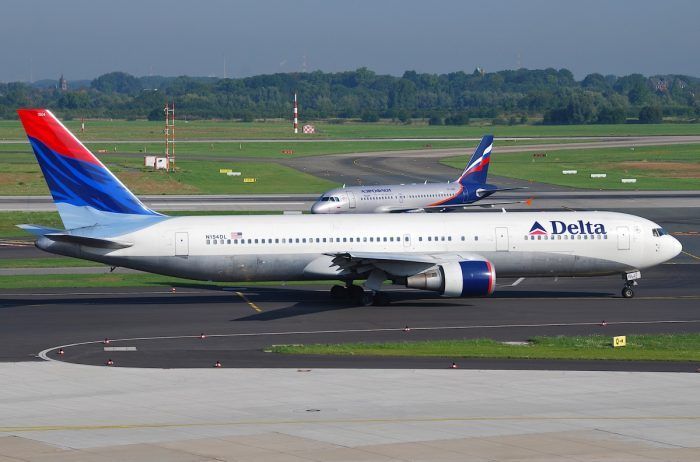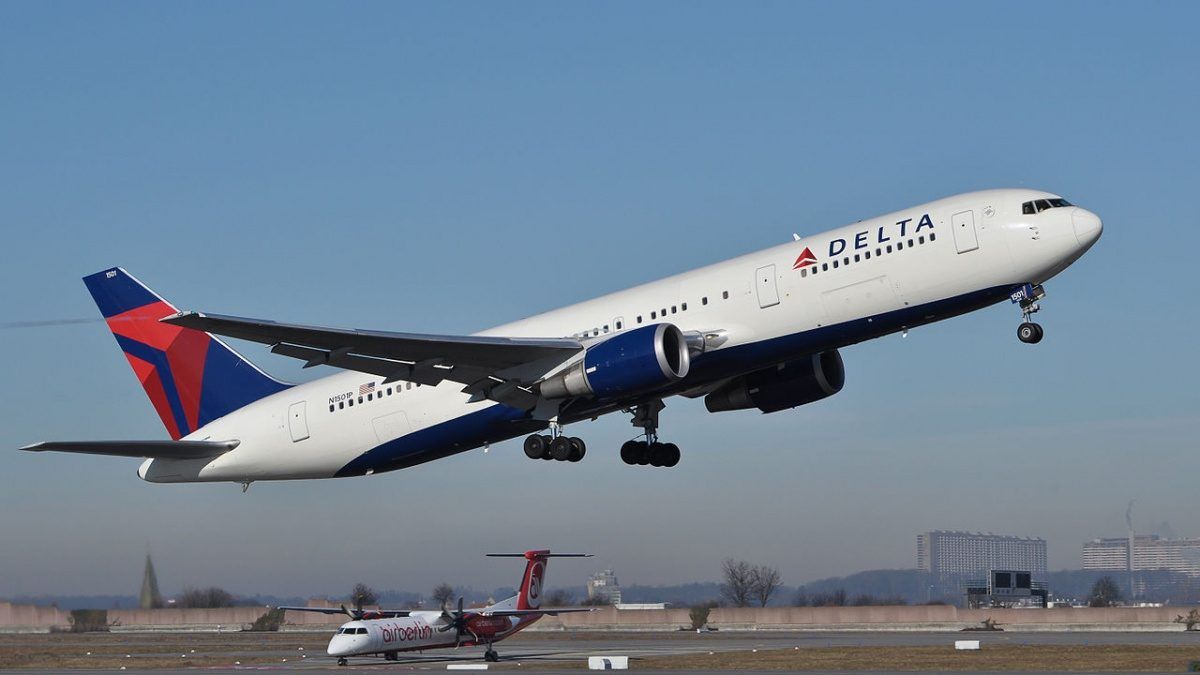Delta Air Lines is expanding the use of facial recognition technology at Los Angeles International Airport. The airline currently uses a camera at a single site, but it will soon be adding to this.
The Points Guy reports that Delta has been experimenting with facial recognition cameras to improve customer experience. Currently, the carrier uses biometrics at their base at Hartsfield-Jackson International in Atlanta. Here, the use of biometrics can be opted into for the whole boarding journey. This includes self-service check in, bag drop, TSA checkpoints and boarding for international routes.
Improving passenger experience
The US-based company also uses parts of this technology in Detroit, Minneapolis and Salt Lake City. Despite the process being optional, the implementation has faced some privacy concerns. Once this technology has passed its experimental phase, many aviation firms may make the use compulsory.
However, Delta states that no passenger biometric data will be stored and that it plans to keep it that way. The system checks passports in the Automated Biometric Identification System (IDENT) database. This is done at US customs with the photograph taken before boarding.

Growing trend
There are many other airlines that have been piloting this process for an improved passenger experience. Last week, American Airlines introduced biometric boarding for selected flights from Dallas Fort Worth International Airport. AA stated that no boarding pass was required for the flight, only passengers' faces.
In the case where a passenger can't be instantly cleared using the new system, an agent will be consulted. The agent will then manually identify the traveler using the standard clearance process. Like Delta's, AA's biometric process is not currently compulsory.
Increased efficiency
Airlines hope that facial recognition technology will improve the time it takes to board. Earlier this year, Lufthansa shared that they boarded 350 passengers onto an Airbus A380 within 20 minutes. The German firm introduced biometric boarding from Miami to Munich in February.
U.S. Customs and Border Protection confirmed that facial recognition takes less than two seconds and has a 99% matching rate. These reports make the prospect of investing in this technology all the more desirable.

Airline bosses have an incentive to reduce the costs of staffing by using these new systems. However, it is not just airline executives that are benefiting from the added convenience.
Passengers don't have to carry the burden of remembering their boarding passes or showing their ID again to board. Ultimately, reducing the time spent boarding each customer has a greater impact on boarding time saved altogether.
Biometrics promise to make boarding an easier process for both airlines and passengers. Successful testing has given the confidence for airlines to expand on its use. Over the next few years, we will see more airlines and more locations experiment with its use.
Simple Flying reached out to Delta for comment on the news but had not heard back prior to publication. We will update with any further information.

